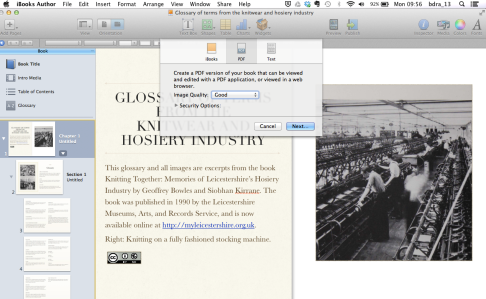The JISC Mobile Learning Infokit quotes NUS research: “the percentage of students who feel that ICT usage has enhanced their experience of studying has actually decreased, from 46% in 2009 to 42% in 2010,” (NUS, 2010) and goes on to suggest that students’ dissatisfaction with technology in education might largely originate in the disconnect between what the institution provides and what they themselves own. (JISC, 2011)
According to the Horizon 2011 report, internet-capable mobile devices will outnumber computers within the following year, and by 2015, 80% of people accessing the Internet will be doing so from mobile devices. (NewMediaConsortium, 2011)
Most universities employ a VLE or LMS, and by policy it is this designed-for-desktop environment through which learning material is distributed; any other channel is considered complementary. While the practical need to do this is clear, it is also clear that this policy, like every other, has a sell-by date. So far, I do not have evidence nor even the impression that students are demanding that their learning material be made available on mobile devices. It may be that no one is really asking them, or that students are not yet thinking of their own mobile devices as agents for learning, or that I haven’t looked hard enough yet. However, what is beyond dispute is that the numbers of students owning more, and more powerful, mobile devices. is increasing. In the second half of 2012, a study revealed that 51% ofpeople in the UK own a smartphone. (ThePaypers, 2012) I do wonder how long students who have never experienced student life without a smartphone or tablet, and who are paying exponentially more in fees than their predecessors, will accept that they cannot access their material on their own device of choice, especially if that device is one which fits seamlessly into most other areas of their lives.
Here at University of Leicester where we use Blackboard as our VLE, the Blackboard Mobile Learn app and our university-contextualised LeicesterUni app were launched this past autumn. The launch was quiet, and yet, over 7000 unique downloads of the Blackboard app have been registered, and these numbers continue to grow. In the two weeks up to 21st February 2013, for example, downloads to iOS devices have increased 3.6%, downloads to Android devices have increased 2.9%, and downloads to Blackberry have increased 0.9%. Educational sector stakeholders need to both engage with each other and keep an eye on such statistics in order to relevantly address the changing requirements of mobile learning.
JISC. (2011). Mobile Learning infokit / Home. Retrieved August 22, 2012, from https://mobilelearninginfokit.pbworks.com/w/page/41122430/Home
NewMediaConsortium. (2011). 2011 Horizon Report. Horizon Report. Retrieved February 22, 2013, from http://www.educause.edu/library/resources/2011-horizon-report
NUS. (2010). NUS/HSBC Student Experience Report: Teaching and Learning. Student Experience Report. Retrieved February 22, 2013, from http://www.nusconnect.org.uk/news/article/6010/1438/
ThePaypers. (2012). The Paypers. Insights in payments. Retrieved January 3, 2013, from http://www.thepaypers.com/news/mobile-payments/smartphone-adoption-in-uk-reaches-51-students-lead-the-way/747745-16
Terese Bird
Learning Technologist, Institute of Learning Innovation, University of Leicester


